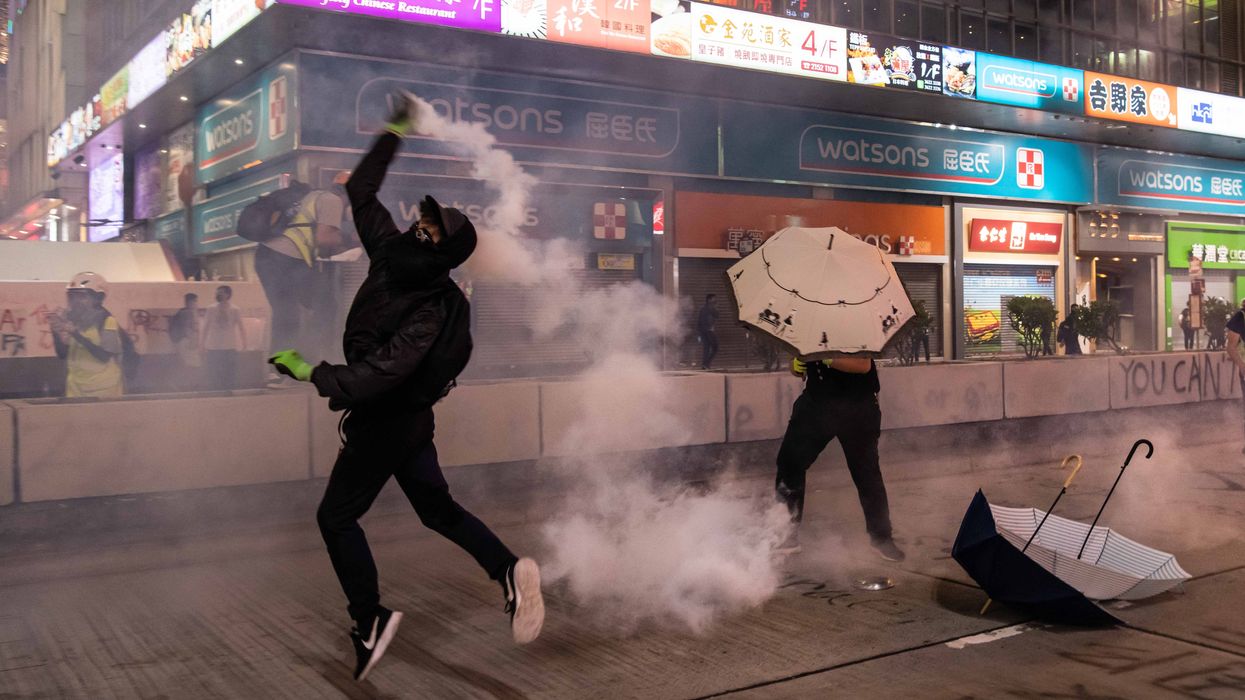The internet and social media, often engines of democracy movements fighting powerful governments, are now more often being used as weapons against democracy and freedom.
That is the depressing conclusion of Freedom House's annual assessment, released Tuesday, which reported a ninth consecutive decline in internet freedom across the globe — including in the United States, where its very high marks nonetheless slipped for the third straight year.
While this country remains a beacon of internet freedom, Freedom House said, it was troubled by the expanded surveillance of the public by law enforcement and immigration agencies using social media and the internet. And it noted how disinformation campaigns continued to surround major political events of the past year such as the Senate confirmation hearings for Justice Brett Kavanaugh of the Supreme Court.
In addition, the United States was one of 26 countries where internal sources used the internet to publish and disseminate false or misleading information during elections in the past year. Only four countries conducted elections during that period without any such interference.
Mike Abramowitz, president of Freedom House, an independent watchdog organization that promotes freedom and democracy, tried during a media call to highlight bright spots around the world, including the use of social media to sustain and magnify this year's protests in Hong Kong.
But the report, by Adrian Shahbaz and Allie Funk, pulls no punches in stating that repressive regimes have converted internet tools "into instruments for political distortion and societal control."
Among the major trends this year are:
- Political leaders using the internet to secretly shape opinion, something happening in 38 of 65 countries that were surveyed. That is a new high.
- Countries using the internet and social media to meddle in the political workings of other countries. China, Iran, Saudi Arabia and others have joined Russia in these efforts, the report states.
- Mass surveillance being conducted via the internet and being used to silence opposing voices in some cases. A record 47 of the 65 countries assessed featured arrests of users for political, social or religious speech.
Thirty-three of the 65 countries Freedom House studies registered overall declines in internet freedom since June 2018. Sudan, Brazil and Bangladesh were among those with the biggest drops.
China earned the ignominious title of the world's worst abuser of internet freedom — for the fourth year in a row.
Sixteen countries earned improvements in their scores. Ethiopia, where the new prime minister has loosened restrictions on the internet, saw the biggest positive jump.
"The future of internet freedom rests on our ability to fix social media," Shahbaz, the report's primary author, concluded. "Since these are mainly American platforms, the United States must be a leader in promoting transparency and accountability in the digital age."
The watchdog group, which gets most of its funding from the federal government, is best known for the annual report it's been issuing since 1973 assessing the state of freedom around the world. The United States dropped to 52nd on the roster of 87 countries categorized as free in the rankings issued in February, because a recent "decline in the rule of law" put American democracy "on a level with Greece, Croatia, and Mongolia" and well below such democracies as Germany and Britain.




















